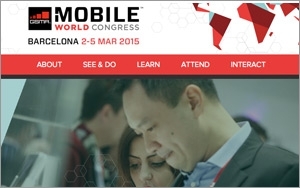 Google plans to launch its own mobile phone network, as it puts together a road map for supplying broadband connections worldwide. Facebook also seeks to connect more people in
developing regions with little or no access the the Internet.
Google plans to launch its own mobile phone network, as it puts together a road map for supplying broadband connections worldwide. Facebook also seeks to connect more people in
developing regions with little or no access the the Internet.
Calling the plan "Project Nova," "a virtual network," Google SVP Sundar Pichai revealed the roadmap Monday at the Mobile
World Congress trade show in Barcelona. The company will offer data plans.
Nova initially will roll out in the United States as part of a wider move by Google to build out networks that beam
Internet connectivity to the earth's remotest regions, where four billion people have poor or zero Internet access.
Google does not intend to compete with AT&T, Verizon and others, but
rather aims to improve their performance by seamlessly crossing networks.
advertisement
advertisement
Subscribers will have the option to switch between mobile phone and WiFi signals, as well as between competing mobile
phone networks to get the best signals for their phone. The test -- conducted in collaboration between the technology company and telecoms -- could one day have a positive impact on search services,
sharing data to more accurately target advertisements and services across mobile carriers.
Google's Project Loon, Project Link and Project Titan seek to provide Internet access using balloons,
fiber access, and drones, respectively. Several recent announcements -- such as Google's acquisition of mobile payments and services company Softcard, and the agreements
with AT&T, T-Mobile U.S., and Verizon Wireless -- also signal initial moves in this direction.
Aside from Project Loon, Google is experimenting with two other methods of reaching remote or
poorly served areas. In Uganda, there is Project Link, a high speed fiber-optic network Internet that resellers can use to offer services to homes and businesses. Titan, solar-powered glider planes
developed by a U.S. company acquired by Google last year, will beam broadband to wide areas, especially meant to bring emergency broadband to disaster zones.
Google and Facebook are both
seeking ways to connect more people in developing regions of the world, although the two are taking different approaches. While Google is engaging in large-scale projects to provide Internet access to
areas with little or no access, Facebook Founder Mark Zuckerberg focuses on the Internet.org project to bring free online services to users with low Internet use through collaborations with mobile
operators.
Zuckerberg said Facebook now connects people in cooperation with regional mobile operators in Zambia, Tanzania, Kenya, and Ghana, as well as India and Colombia.
Although Zuckerberg insists that Facebook isn't a mobile regulator or operator, he said that "apps drive data usage, and that's the future of the business." The biggest challenge becomes building
an infrastructure likely to cost tens of billions of dollars.